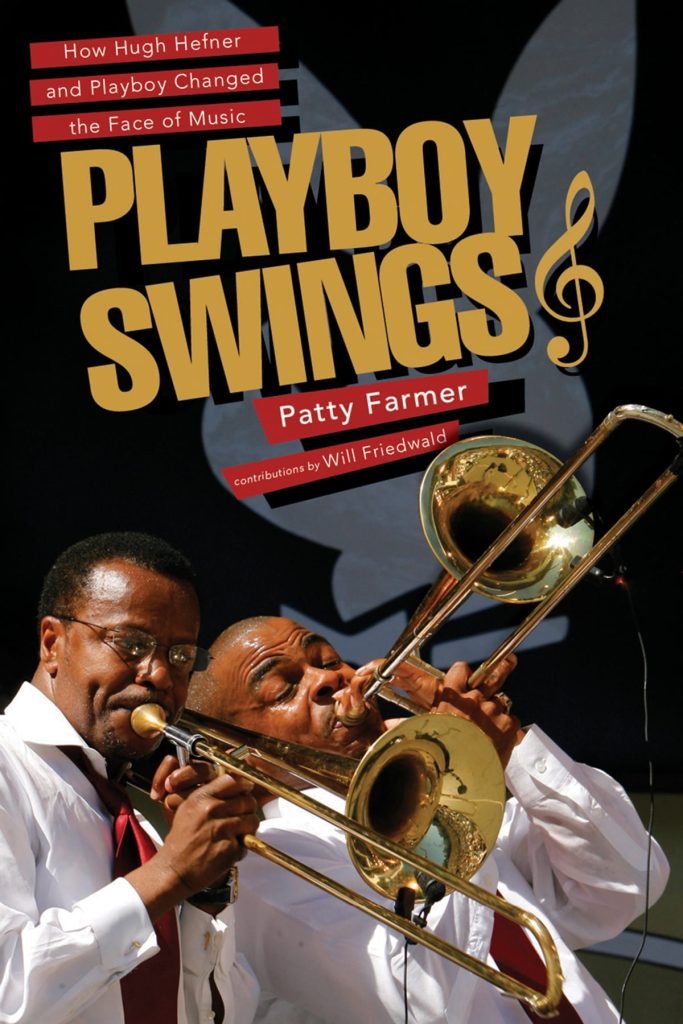Playboy Swings
 Buy the Book:
Buy the Book:Amazon
Barnes & Noble
Audible
Release Date: November 30, 2015
Pages: 393
ISBN13: 978-0825307881
Overview
Playboy, one of the world’s best-known brands, was all about lifestyle, and Hugh Hefner’s passion for the finest jazz music has always been an essential component of that lifestyle. It expressed itself in a wide range of media over Playboy’s lengthy history.
I like to believe I’ve made it all come alive in the pages of Playboy Swing’s through compiling interviews with hundreds of people who were on the scene throughout Playboy’s rise, fall, and ongoing renaissance. Playboy Swing’s carries readers on a seductive journey through history—from the inception of the Playboy Empire to the 1950 jazz festival, to the opening of club after club—all the while focusing on the musical entertainment that made it unique. I let the artists do most of the talking, and they have a lot to say about that golden era.
Praise
"For anyone interested in the good old days of jazz, rye old-fashions, and life after dark, this book brings back the music, rough glamour, and entertainment of the Playboy Empire in all their exhilarating, ground-braking glory. Patty Farmer's Playboy Swings is well-researched, breezily written, incredibly informative, and a lot of fun."
—REX REED, renown critic, occasional actor and TV host
"Hugh Hefner's Playboy Clubs promoted music and laughter. Comedians, hot little jazz combos, plus singers were staples of his supper clubs. His festivals brought the legends of jazz to the world. Music and laughter—healing stuff! The BALM! And Playboy Swings really tells the story."
—Al Jarreau, Five times Grammy-winning singer
“Patty Farmer does full justice to this largely forgotten and essential story in American cultural history."
—David Hajdu, Professor of Art and Culture, Columbia University
"Both jazz and Playboy meant something to me. Hugh Hefner always kept jazz busy at his mansion. It was never behind the scenes but always out front. Hugh's love of jazz made it more available to more people. Patty Farmer really captures how Playboy's relationship with music and the artists evolved from the beginning to what it is today."
—Jon Hendricks, Jazz lyricist, singer, and one-third of the legendary vocal trio Lambert, Hendricks, and Ross
Excerpt
One of the earliest artists that Victor (Lownes) hired for the Chicago Playboy Club was Aretha Franklin. “We were her first big engagement,” says Victor. “Later on, she concentrated on singing, but in 1960, she both sang and played piano. Keith (Hefner) was the room director, and he suggested we fire her because he didn’t think she was any good. I liked both her singing and playing and said, ‘No, we’re keeping her.’” To be fair to Keith, this young woman’s destiny wasn’t clearly written yet in 1960, she only turned eighteen in March of that year, and it would have been impossible to predict so early that she would later fuse jazz and gospel music and create soul music in the process.
Victor feels as if he got the last laugh in this instance, “Of course, she became a big star. Occasionally, I have fun reminding Keith of his suggestion.”